- Home
- D. H. Lawrence
The Rainbow Page 4
The Rainbow Read online
Page 4
Living on rich land, on their own land, near to a growing town, they had forgotten what it was to be in straitened circumstances. They had never become rich, because there were always children, and the patrimony was divided every time. But always, at the Marsh, there was ample.
So the Brangwens came and went without fear of necessity, working hard because of the life that was in them, not for want of the money. Neither were they thriftless. They were aware of the last halfpenny, and instinct made them not waste the peeling of their apple, for it would help to feed the cattle. But heaven and earth was teeming around them, and how should this cease? They felt the rush of the sap in spring, they knew the wave which cannot halt, but every year throws forward the seed to begetting, and, falling back, leaves the young-born on the earth. They knew the intercourse between heaven and earth, sunshine drawn into the breast and bowels, the rain sucked up in the daytime, nakedness that comes under the wind in autumn, showing the birds’ nests no longer worth hiding. Their life and interrelations were such; feeling the pulse and body of the soil, that opened to their furrow for the grain, and became smooth and supple after their ploughing, and clung to their feet with a weight that pulled like desire, lying hard and unresponsive when the crops were to be shorn away. The young corn waved and was silken, and the lustre slid along the limbs of the men who saw it. They took the udder of the cows, the cows yielded milk and pulse against the hands of the men, the pulse of the blood of the teats of the cows beat into the pulse of the hands of the men. They mounted their horses, and held life between the grip of their knees, they harnessed their horses at the wagon, and, with hand on the bridle-rings, drew the heaving of the horses after their will.
In autumn the partridges whirred up, birds in flocks blew like spray across the fallow, rooks appeared on the grey, watery heavens, and flew cawing into the winter. Then the men sat by the fire in the house where the women moved about with surety, and the limbs and the body of the men were impregnated with the day, cattle and earth and vegetation and the sky, the men sat by the fire and their brains were inert, as their blood flowed heavy with the accumulation from the living day.
The women were different. On them too was the drowse of blood-intimacy, calves sucking and hens running together in droves, and young geese palpitating in the hand while the food was pushed down their throttle. But the women looked out from the heated, blind intercourse of farm-life, to the spoken world beyond. They were aware of the lips and the mind of the world speaking and giving utterance, they heard the sound in the distance, and they strained to listen.
It was enough for the men, that the earth heaved and opened its furrow to them, that the wind blew to dry the wet wheat, and set the young ears of corn wheeling freshly round about; it was enough that they helped the cow in labour, or ferreted the rats from under the barn, or broke the back of a rabbit with a sharp knock of the hand. So much warmth and generating and pain and death did they know in their blood, earth and sky and beast and green plants, so much exchange and interchange they had with these, that they lived full and surcharged, their senses full fed, their faces always turned to the heat of the blood, staring into the sun, dazed with looking towards the source of generation, unable to turn round.
But the woman wanted another form of life than this, something that was not blood-intimacy. Her house faced out from the farm-buildings and fields, looked out to the road and the village with church and Hall and the world beyond. She stood to see the far-off world of cities and governments and the active scope of man, the magic land to her, where secrets were made known and desires fulfilled. She faced outwards to where men moved dominant and creative, having turned their back on the pulsing heat of creation, and with this behind them, were set out to discover what was beyond, to enlarge their own scope and range and freedom; whereas the Brangwen men faced inwards to the teeming life of creation, which poured unresolved into their veins.
Looking out, as she must, from the front of her house towards the activity of man in the world at large, whilst her husband looked out to the back at sky and harvest and beast and land, she strained her eyes to see what man had done in fighting outwards to knowledge, she strained to hear how he uttered himself in his conquest, her deepest desire hung on the battle that she heard, far off, being waged on the edge of the unknown. She also wanted to know, and to be of the fighting host.
At home, even so near as Cossethay,* was the vicar, who spoke the other, magic language, and had the other, finer bearing, both of which she could perceive, but could never attain to. The vicar moved in worlds beyond where her own menfolk existed. Did she not know her own menfolk: fresh, slow, full-built men, masterful enough, but easy, native to the earth, lacking outwardness and range of motion. Whereas the vicar, dark and dry and small beside her husband, had yet a quickness and a range of being that made Brangwen, in his large geniality, seem dull and local. She knew her husband. But in the vicar’s nature was that which passed beyond her knowledge. As Brangwen had power over the cattle so the vicar had power over her husband. What was it in the vicar, that raised him above the common men as man is raised above the beast? She craved to know. She craved to achieve this higher being, if not in herself, then in her children. That which makes a man strong even if he be little and frail in body, just as any man is little and frail beside a bull, and yet stronger than the bull, what was it? It was not money nor power nor position. What power had the vicar over Tom Brangwen—none. Yet strip them and set them on a desert island, and the vicar was the master. His soul was master of the other man’s. And why—why? She decided it was a question of knowledge.
The curate was poor enough, and not very efficacious as a man, either, yet he took rank with those others, the superior. She watched his children being born, she saw them running as tiny things beside their mother. And already they were separate from her own children, distinct. Why were her own children marked below those others? Why should the curate’s children inevitably take precedence over her children, why should dominance be given them from the start? It was not money, nor even class. It was education and experience, she decided.
It was this, this education, this higher form of being, that the mother wished to give to her children, so that they too could live the supreme life on earth. For her children, at least the children of her heart, had the complete nature that should take place in equality with the living, vital people in the land, not be left behind obscure among the labourers. Why must they remain obscured and stifled all their lives, why should they suffer from lack of freedom to move? How should they learn the entry into the finer, more vivid circle of life?
Her imagination was fired by the squire’s lady at Shelly Hall,* who came to church at Cossethay with her little children, girls in tidy capes of beaver fur, and smart little hats, herself like a winter rose, so fair and delicate. So fair, so fine in mould, so luminous, what was it that Mrs Hardy felt which she, Mrs Brangwen did not feel? How was Mrs Hardy’s nature different from that of the common women of Cossethay, in what was it beyond them? All the women of Cossethay talked eagerly about Mrs Hardy, of her husband, her children, her guests, her dress, of her servants and her housekeeping. The lady of the Hall was the living dream of their lives, her life was the epic that inspired their lives. In her they lived imaginatively, and in gossiping of her husband who drank, of her scandalous brother, of Lord William Bentley her friend, member of Parliament for the division, they had their own Odyssey* enacting itself, Penelope and Ulysses before them, and Circe and the swine and the endless web.
So the women of the village were fortunate. They saw themselves in the lady of the manor, each of them lived her own fulfilment in the life of Mrs Hardy. And the Brangwen wife of the Marsh aspired beyond herself, towards the further life of the finer woman, towards the extended being she revealed, as a traveller in his self-contained manner reveals far-off countries present in himself. But why should a knowledge of far-off countries make a man’s life a different thing, finer, bigger? And why is a man more than
the beast and the cattle that serve him? It is the same thing.
The male part of the poem was filled in by such men as the vicar and Lord William, lean, eager men with strange movements, men who had command of the further fields, whose lives ranged over a great extent. Ah, it was something very desirable to know, this touch of the wonderful men who had the power of thought and comprehension. The women of the village might be much fonder of Tom Brangwen, and more at their ease with him, yet if their lives had been robbed of the vicar, and of Lord William, the leading shoot would have been cut away from them, they would have been heavy and uninspired and inclined to hate. So long as the wonder of the beyond was before them, they could get along, whatever their lot. And Mrs Hardy, and the vicar, and Lord William, these moved in the wonder of the beyond, and were visible to the eyes of Cossethay in their motion.
II
About 1840, a canal was constructed* across the meadows of the Marsh Farm, connecting the newly-opened collieries of the Erewash Valley. A high embankment travelled along the fields to carry the canal, which passed close to the homestead, and, reaching the road, went over in a heavy bridge.
So the Marsh was shut off from Ilkeston, and enclosed in the small valley bed, which ended in a bushy hill and the village spire of Cossethay.
The Brangwens received a fair sum of money from this trespass across their land. Then, a short time afterwards, a colliery was sunk on the other side of the canal, and in a while the Midland Railway came down the valley at the foot of the Ilkeston hill, and the invasion was complete. The town grew rapidly, the Brangwens were kept busy producing supplies, they became richer, they were almost tradesmen.
Still the Marsh remained remote and original, on the old, quiet side of the canal embankment, in the sunny valley where slow water wound along in company of stiff alders, and the road went under ash-trees past the Brangwens’ garden gate.
But, looking from the garden gate down the road to the right, there, through the dark archway of the canal’s square aqueduct, was a colliery spinning away in the near distance, and further, red, crude houses plastered on the valley in masses, and beyond all, the dim smoking hill of the town.
The homestead was just on the safe side of civilisation, outside the gate. The house stood bare from the road, approached by a straight garden path, along which at spring the daffodils were thick in green and yellow. At the sides of the house were bushes of lilac and guelder-rose and privet, entirely hiding the farm buildings behind.
At the back a confusion of sheds spread into the home-close from out of two or three indistinct yards. The duckpond lay beyond the furthest wall, littering its white feathers on the padded earthen banks, blowing its stray soiled feathers into the grass and the gorse bushes below the canal embankment, which rose like a high rampart near at hand, so that occasionally a man’s figure passed in silhouette, or a man and a towing horse traversed the sky.
At first the Brangwens were astonished by all this commotion around them. The building of a canal across their land made them strangers in their own place, this raw bank of earth shutting them off disconcerted them. As they worked in the fields, from beyond the now familiar embankment came the rhythmic run of the winding engines,* startling at first, but afterwards a narcotic to the brain. Then the shrill whistle of the trains re-echoed through the heart, with fearsome pleasure, announcing the far-off come near and imminent.
As they drove home from town, the farmers of the land met the blackened colliers trooping from the pit-mouth. As they gathered the harvest, the west wind brought a faint, sulphurous smell of pit-refuse burning. As they pulled the turnips in November, the sharp clink-clink-clink-clink-clink of empty trucks shunting on the line, vibrated in their hearts with the fact of other activity going on beyond them.
The Alfred Brangwen of this period had married a woman from Heanor, daughter of the ‘Black Horse.’ She was a slim, pretty, dark woman, quaint in her speech, whimsical, so that the sharp things she said did not hurt. She was oddly a thing to herself, rather querulous in her manner, but intrinsically separate and indifferent, so that her long lamentable complaints, when she raised her voice against her husband in particular and against everybody else after him, only made those who heard her wonder and feel affectionately towards her, even whilst they were irritated and impatient with her. She railed long and loud about her husband, but always with a balanced, easy-flying voice and a quaint manner of speech that warmed his belly with pride and male triumph whilst he scowled with mortification at the things she said.
Consequently Brangwen himself had a humorous puckering at the eyes, a sort of fat laugh, very quiet and full, and he was spoilt like a lord of creation. He calmly did as he liked, laughed at her railing, excused himself in a teasing tone that she loved, followed his natural inclinations, and sometimes, pricked too near the quick, frightened and broke her by a deep, tense fury which seemed to fix on him and hold him for days, and which she would give anything to placate in him. They were two very separate beings, vitally connected, knowing nothing of each other, yet living in their separate ways from one root.
There were four sons and two daughters. The eldest boy ran away early to sea, and did not come back. After this the mother was more the node and centre of attraction in the home. The second boy, Alfred, whom the mother admired most, was the most reserved. He was sent to school in Ilkeston and made some progress. But in spite of his dogged, yearning effort, he could not get beyond the rudiments of anything, save of drawing. At this, in which he had some power, he worked, as if it were his hope. After much grumbling and savage rebellion against everything, after much trying and shifting about, when his father was incensed against him and his mother almost despairing, he became a draughtsman in a lace-factory in Nottingham.*
He remained heavy and somewhat uncouth, speaking with broad Derbyshire accent, adhering with all his tenacity to his work and to his town position, making good designs, and becoming fairly well-off. But at drawing, his hand swung naturally in big, bold lines, rather lax, so that it was cruel for him to pedgill* away at the lace designing, working from the tiny squares of his paper, counting and plotting and niggling. He did it stubbornly, with anguish, crushing the bowels within him, adhering to his chosen lot whatever it should cost. And he came back into life set and rigid, a rare-spoken, almost surly man.
He married the daughter of a chemist, who affected some social superiority, and he became something of a snob, in his dogged fashion, with a passion for outward refinement in the household, mad when anything clumsy or gross occurred. Later, when his three children were growing up, and he seemed a staid, almost middle-aged man, he turned after strange women, and became a silent, inscrutable follower of forbidden pleasure, neglecting his indignant bourgeois wife without a qualm.
Frank, the third son, refused from the first to have anything to do with learning. From the first he hung round the slaughterhouse which stood away in the third yard at the back of the farm. The Brangwens had always killed their own meat, and supplied the neighbourhood. Out of this grew a regular butcher’s business in connection with the farm.
As a child Frank had been drawn by the trickle of dark blood that ran across the pavement from the slaughter-house to the crew-yard, by the sight of the man carrying across to the meatshed a huge side of beef, with the kidneys showing, embedded in their heavy laps of fat.
He was a handsome lad with soft brown hair and regular features something like a later Roman youth. He was more easily excitable, more readily carried away than the rest, weaker in character. At eighteen he married a little factory girl, a pale, plump, quiet thing with sly eyes and a wheedling voice, who insinuated herself into him and bore him a child every year and made a fool of him. When he had taken over the butchery business, already a growing callousness to it, and a sort of contempt made him neglectful of it. He drank, and was often to be found in his public house blathering away as if he knew everything, when in reality he was a noisy fool.
Of the daughters, Alice, the elder, m
arried a collier and lived for a time stormily in Ilkeston, before moving away to Yorkshire with her numerous young family. Effie, the younger, remained at home.
The last child, Tom, was considerably younger than his brothers, so had belonged rather to the company of his sisters. He was his mother’s favourite. She roused herself to determination, and sent him forcibly away to a grammar-school in Derby when he was twelve years old. He did not want to go, and his father would have given way, but Mrs Brangwen had set her heart on it. Her slender, pretty, tightly-covered body, with full skirts, was now the centre of resolution in the house, and when she had once set upon anything, which was not often, the family failed before her.
So Tom went to school, an unwilling failure from the first. He believed his mother was right in decreeing school for him, but he knew she was only right because she would not acknowledge his constitution. He knew, with a child’s deep, instinctive foreknowledge of what is going to happen to him, that he would cut a sorry figure at school. But he took the infliction as inevitable, as if he were guilty of his own nature, as if his being were wrong, and his mother’s conception right. If he could have been what he liked, he would have been that which his mother fondly but deludedly hoped he was. He would have been clever, and capable of becoming a gentleman. It was her aspiration for him, therefore he knew it as the true aspiration for any boy. But you can’t make a silk purse out of a sow’s ear, as he told his mother very early, with regard to himself; much to her mortification and chagrin.
When he got to school, he made a violent struggle against his physical inability to study. He sat gripped, making himself pale and ghastly in his effort to concentrate on the book, to take in what he had to learn. But it was no good. If he beat down his first repulsion, and got like a suicide to the stuff, he went very little further. He could not learn deliberately. His mind simply did not work.
In feeling he was developed, sensitive to the atmosphere around him, brutal perhaps, but at the same time delicate, very delicate. So he had a low opinion of himself. He knew his own limitation. He knew that his brain was a slow hopeless good-for-nothing. So he was humble.

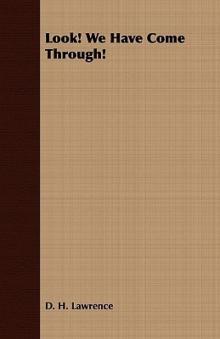 Look! We Have Come Through!
Look! We Have Come Through!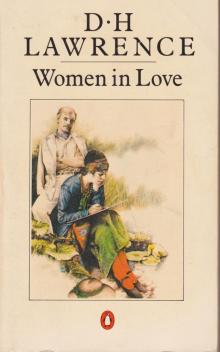 Women in Love
Women in Love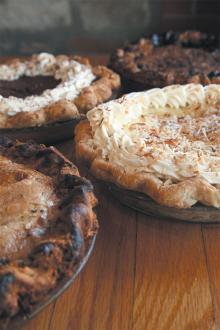 The Ladybird
The Ladybird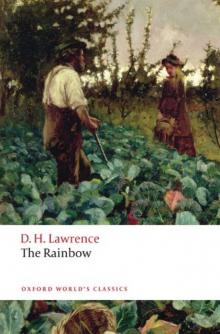 The Rainbow
The Rainbow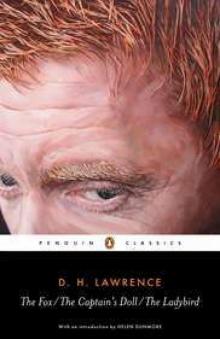 The Captain's Dol
The Captain's Dol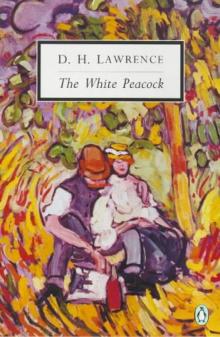 The White Peacock
The White Peacock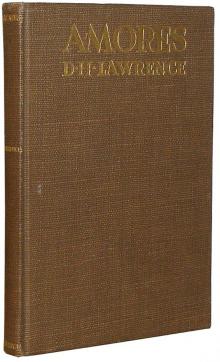 Amores
Amores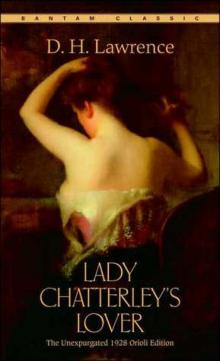 Lady Chatterley's Lover
Lady Chatterley's Lover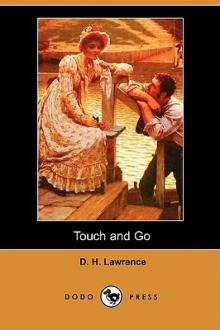 Touch and Go
Touch and Go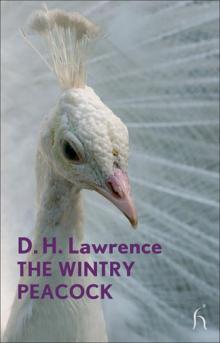 The Wintry Peacock
The Wintry Peacock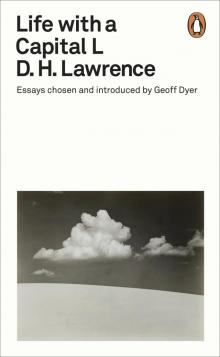 Life with a Capital L
Life with a Capital L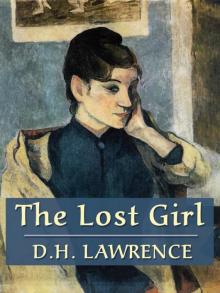 The Lost Girl
The Lost Girl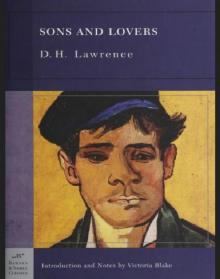 Sons and Lovers
Sons and Lovers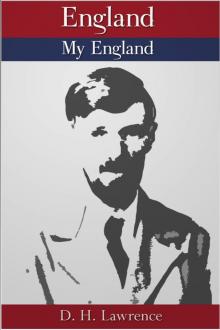 England, My England
England, My England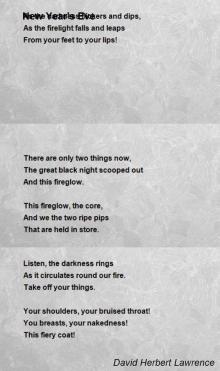 New Poems
New Poems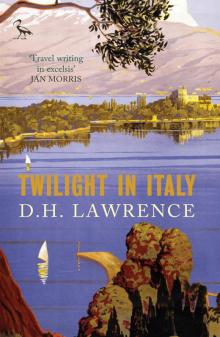 Twilight in Italy
Twilight in Italy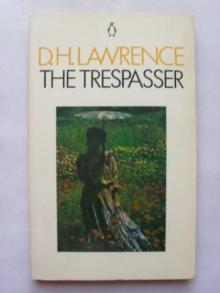 The Trespasser
The Trespasser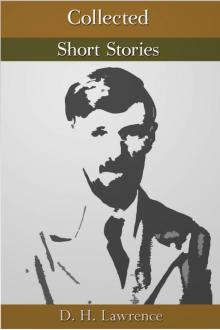 The Collected Short Stories
The Collected Short Stories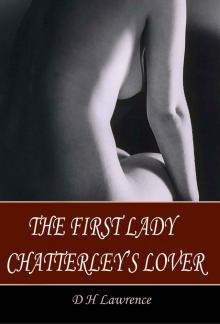 The First Lady Chatterley's Lover
The First Lady Chatterley's Lover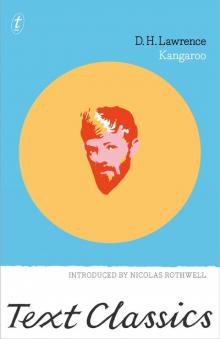 Kangaroo
Kangaroo Bay
Bay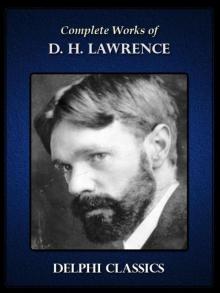 Complete Works of D.H. Lawrence
Complete Works of D.H. Lawrence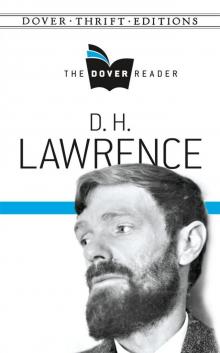 D H Lawrence- The Dover Reader
D H Lawrence- The Dover Reader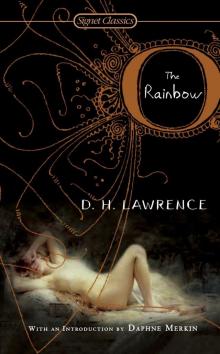 The Rainbow (100th Anniversary ed.)
The Rainbow (100th Anniversary ed.)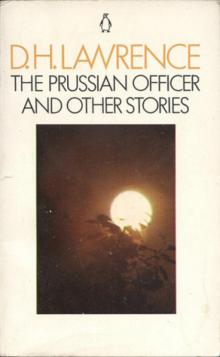 The Prussian Officer
The Prussian Officer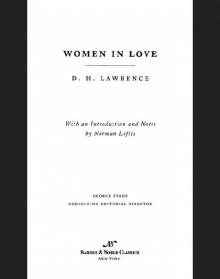 Women in Love (Barnes & Noble Classics Series)
Women in Love (Barnes & Noble Classics Series)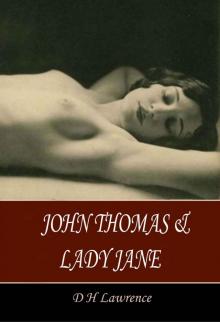 John Thomas and Lady Jane
John Thomas and Lady Jane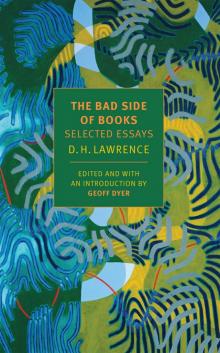 The Bad Side of Books
The Bad Side of Books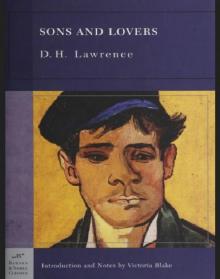 Sons and Lovers (Barnes & Noble Classics Series)
Sons and Lovers (Barnes & Noble Classics Series) Selected Stories
Selected Stories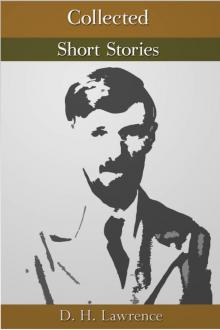 Collected Short Stories
Collected Short Stories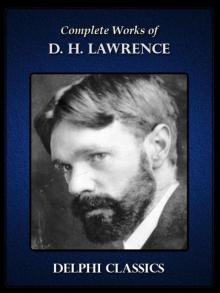 Complete Works of D.H. Lawrence (Illustrated)
Complete Works of D.H. Lawrence (Illustrated)